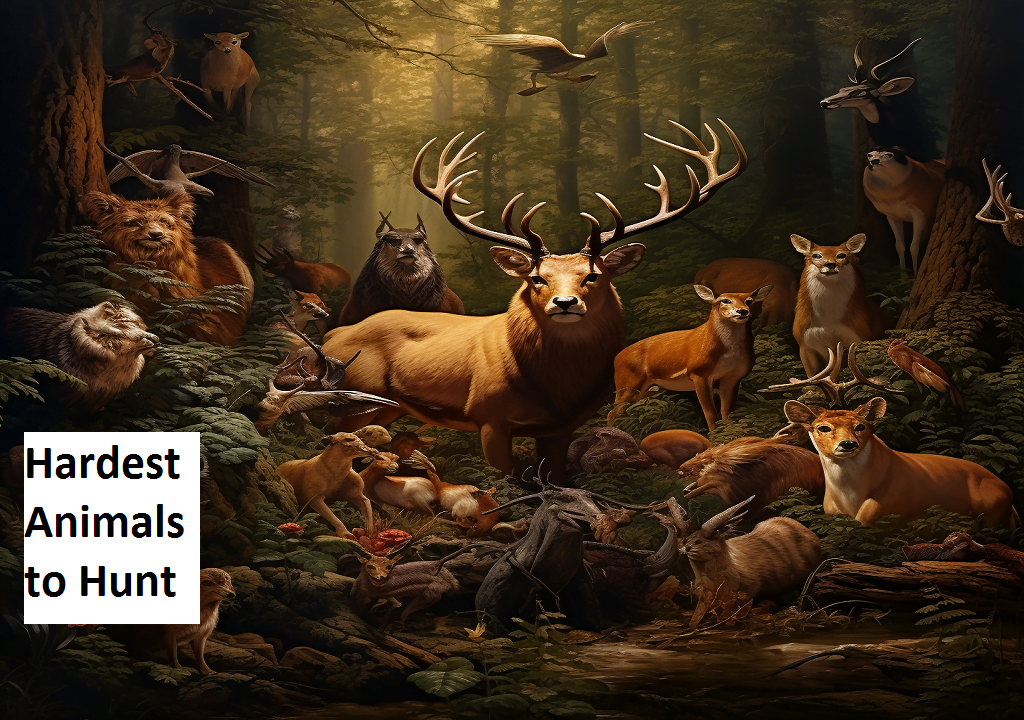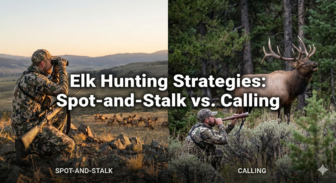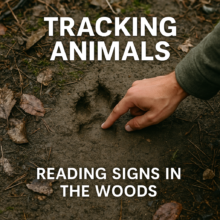The Hardest Animals to Hunt: A Comprehensive Guide

Table of Contents
- Table of contents
- Introduction
- The African Elephant: The Giant of the Jungle
- The Cape Buffalo: The Dangerous Game
- The Mountain Goat: The Cliffhanger
- The Snow Leopard: The Ghost of the Mountains
- The Brown Bear: The Mighty Beast
- The Blue Whale: The Titan of the Sea
- The Pronghorn Antelope: The Speedster
- The White-Tailed Deer: The Skittish Prey
- The Wild Boar: The Ferocious Foe
- The Grey Wolf: The Elusive Predator
- Conclusion
- FAQs
Table of contents
Introduction
Hunting requires patience, skill, knowledge, and a deep respect for nature. Certain animals, with their unique adaptations, can present a formidable challenge to even the most seasoned hunters. This article will introduce you to some of the hardest animals to hunt, providing insights into what makes them difficult targets.
The African Elephant: The Giant of the Jungle
The African Elephant is the largest land animal and hunting it is a significant undertaking. The difficulty lies not only in their immense size but also in their heightened senses and strong social structures. Additionally, ethical considerations and strict legal restrictions make elephant hunting a contentious issue.
The Cape Buffalo: The Dangerous Game
The Cape Buffalo, also known as the African Buffalo, is considered one of the most dangerous animals to hunt. These large and unpredictable creatures are responsible for numerous fatalities each year. They’re aggressive, especially when wounded or if their young are threatened.
The Mountain Goat: The Cliffhanger
Living high up in the rugged, snowy cliffs, Mountain Goats are incredibly challenging to hunt. The terrain is treacherous, often testing a hunter’s physical fitness and willpower to the limits. Besides, their excellent camouflage and nimble movements make spotting and stalking them a challenge.
The Snow Leopard: The Ghost of the Mountains
Snow Leopards are elusive creatures that dwell in high altitudes in Central Asia. Their superior camouflage, coupled with their solitary and primarily nocturnal habits, makes them an almost impossible target. Furthermore, hunting Snow Leopards is strictly prohibited due to their endangered status.
The Brown Bear: The Mighty Beast
Hunting a Brown Bear is a feat few can claim. These massive animals, weighing up to 1300 pounds, are renowned for their strength and speed. A wounded bear is also highly dangerous and can attack with lethal force.
The Blue Whale: The Titan of the Sea
Although hunting Blue Whales is now illegal and ethically unacceptable, they were once the hardest animals to hunt. Their colossal size, coupled with their habitat in the open ocean, made them an extremely challenging and dangerous quarry.
The Pronghorn Antelope: The Speedster
Pronghorns are the second-fastest land animals and can sustain high speeds for long distances, making them difficult targets. Their exceptional vision, equivalent to 8x binoculars, also enables them to spot predators from afar.
The White-Tailed Deer: The Skittish Prey
Despite being one of the most popular game animals, White-Tailed Deer are surprisingly challenging to hunt. They’re highly alert and have an excellent sense of smell, often detecting hunters before they can get a shot.
The Wild Boar: The Ferocious Foe
Wild Boars are aggressive, intelligent, and resilient, making them challenging prey. These creatures have an exceptional sense of smell and are known to charge at hunters when threatened, causing injuries with their sharp tusks.
The Grey Wolf: The Elusive Predator
Hunting the apex predator of the wilderness, the Grey Wolf, is no small task. These elusive creatures are incredibly intelligent, have acute senses, and are always on the move. Tracking a pack requires extensive knowledge of their behavior and excellent tracking skills.
Conclusion
From the speedy Pronghorn to the mighty Brown Bear, these creatures represent some of the toughest challenges in the hunting world. They demand respect, patience, and a high level of skill from the hunter. Ultimately, it’s the thrill of the chase and the profound connection with nature that makes hunting these difficult animals a rewarding experience.
FAQs
1. What makes an animal hard to hunt?
An animal’s difficulty to hunt depends on various factors, including its senses, speed, behavior, habitat, and the laws protecting it.
2. Which animal is the most dangerous to hunt?
While several animals pose danger to hunters, the Cape Buffalo, also known as the Black Death, is considered the most dangerous due to its unpredictability and aggressive behavior.
3. Why is hunting important?
Hunting plays an essential role in wildlife management. It helps control populations of certain animal species, contributes to conservation efforts, and supports local economies.
4. Is hunting endangered animals legal?
Hunting endangered animals is illegal and heavily punishable by international laws. It’s essential to check local regulations before planning any hunting trip.
5. Can hunting be considered ethical?
Hunting ethics involve fair chase principles, respect for animals, and adherence to local laws and regulations. Ethical hunters contribute to conservation efforts and ensure minimal suffering for the animals.







